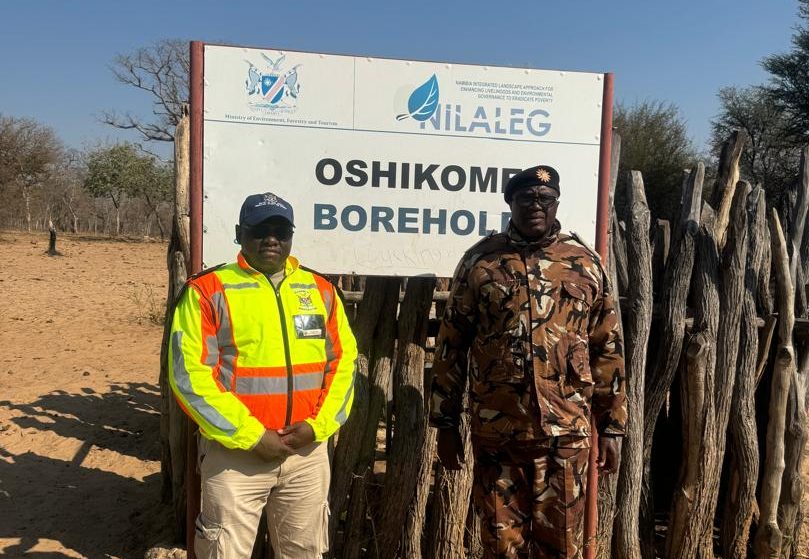Broken promises: Zim banker fails to repay N$140m
Written by on May 6, 2024
… Kamushinda only paid back N$3m of N$247m stolen from SME Bank
Zimbabwean banker and minority shareholder in the liquidated Namibian SME Bank Enock Kamushinda initially agreed to pay back N$140 million of the N$247 million stolen from the bank.
However, Kamushinda only paid back N$3 million and questioned the validity of a N$140 million settlement agreement with the bank’s liquidators, claiming he signed it because he feared going to jail, according to documents from the High Court of Zimbabwe.
Kamushinda claimed he was threatened with arrest and deportation to coerce him into signing the agreement.
However, David Bruni, the bank’s liquidator, vehemently denies these accusations.
“I emphatically deny this allegation,” he says.
Kamushinda has offered no evidence to support his claims and has failed to specify the alleged threats or who issued them.
He left Namibia voluntarily before the Bank of Namibia took over SME Bank in March 2017 and has not returned since, according to the liquidators.
Kamushinda has been named by the liquidators as the mastermind behind the looting of at least
N$247 million from SME Bank between December 2013 and December 2016.
“Even if Kamushinda feared arrest, he does not say that such arrest would have been unlawful. Fear of lawful arrest cannot be an excuse allowing a party to escape from lawful settlement agreements,” Bruni says.
Emails and court documents indicate that Kamushinda’s actions contradict his claims.
The settlement negotiations were initiated by Kamushinda himself, through his former lawyer Francois Bangamwabo.
The agreement was signed in Harare on 18 December 2020, around three years after Kamushinda left Namibia.
It was signed by Kamushinda, former SME Bank chief executive Tawanda Mumvuma and Chiedza Goromonzi, a former administrative assistant in the finance department.
After the agreement became a court order on 25 January 2021, Kamushinda repeatedly acknowledged the settlement agreement’s validity by requesting extensions to pay the N$140 million, according to emails seen by The Namibian.
NEGOTIATIONS
Kamushinda, through Bangamwabo, on 3 November 2020 initiated a settlement agreement of N$120 million to be paid in full “to settle this matter once and for all so as to put an end to the ongoing litigation”.
The amount was to be paid in one instalment within 30 days of signing the settlement agreement.
This offer was rejected by the liquidators on 5 November 2020 as they deemed it too low.
On 9 November 2020, Kamushinda’s lawyer made an offer of N$130 million payable within 60 days after signing of the agreement.
As part of the agreement, Kamushinda wanted the liquidators to abandon the case.
The case is against Kamushinda and other defendants for an amount of more than N$247 million which was looted from SME Bank.
Both parties eventually agreed to a settlement agreement of N$140 million, which was signed by Kamushinda, Mumvuma and Goromonzi in Harare on 18 December 2020.
At the time, Kamushinda further signed the settlement agreement on behalf of his Namibian companies Crown Finance Corporation and Heritage Investments Holdings.
The settlement agreement was also signed by a lawyer, Robert Mclaren and liquidator David Bruni on 11 January 2021.
It was uploaded onto the e-Justice filing system seven days later, together with a proposed draft order and on 25 January 2021 the High Court of Namibia made the settlement agreement an order of the court.
But Kamushinda and co never paid the amount in full as agreed.
Instead, they kept making promises.
A N$1-million payment was made by Kamushinda’s lawyer on 26 March 2021. Another payment of N$2 million was paid on 10 June 2021.
But then the payments stopped.
“Following the settlement agreement, Covid-19 disrupted the conduct of business in Zimbabwe, which greatly affected their operations. This was coupled with numerous lockdowns with varying levels,” said Kamushinda’s former-lawyer.
He said the resurgence of more virulent and deadly Covid-19 strains and the reduction of working hours of his clients’ operating business negatively impacted their business.
Kamushinda, Mumvuma and Goromonzi, through their former lawyer, then made a proposal to settle the amount within 120 days as Covid-19 restrictions were being lifted.
“This attempt by Kamushinda to now avoid the consequences of him having signed the settlement agreement constitutes parol evidence,” Bruni says.
The Judicial Education Centre defines parol evidence as a rule that prevents the introduction of evidence of prior or simultaneous negotiations and agreements that contradict, modify, or vary the contractual terms of a written contract when the written contract is intended to be a complete and final expression of the parties’ agreement.
Bangamwabo yesterday said: “I am no longer representing him. He fired me. It has been about four years now. He has moved on and I have moved on.”
The post Broken promises: Zim banker fails to repay N$140m appeared first on The Namibian.


